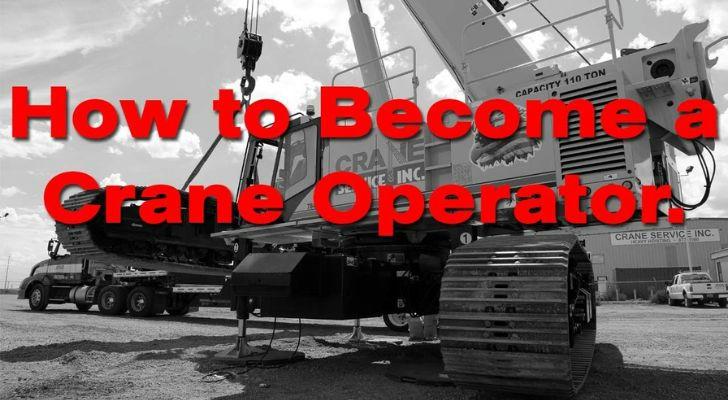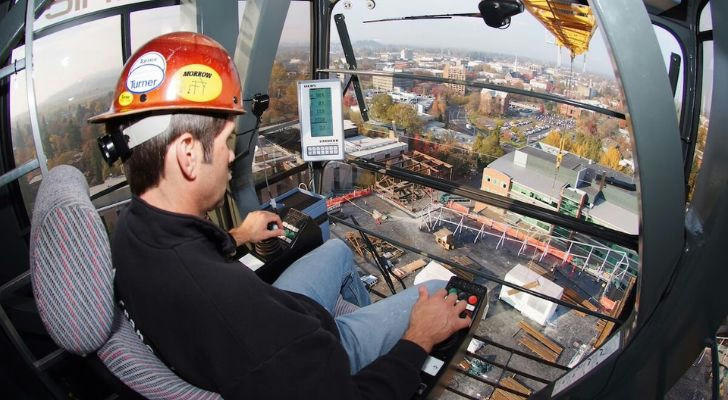How to Become a Crane Operator
Crane operators play a vital role in construction, manufacturing, shipping, and many other sectors. With infrastructure investment increasing and a consistent demand for skilled equipment operators, the path to becoming a crane operator offers solid long-term career potential. This article outlines a clear, research-based explanation of how to become a crane operator in the United States, including training requirements, certification, work conditions, and job outlook.

What Does a Crane Operator Do?
A crane operator controls lifting equipment that moves materials of all sizes and weights around construction sites, shipping yards, manufacturing plants, and industrial facilities. Responsibilities typically include:
- Operating mobile or tower cranes safely
- Reading load charts and calculating load weights
- Inspecting equipment before use
- Coordinating with signal persons and jobsite managers
- Following federal and state safety regulations
Different types of cranes include tower cranes, mobile cranes, overhead cranes, and boom trucks, each with its own skill set and use case.
Education Requirements
A high school diploma or GED is generally the minimum educational requirement for entry into the field. Subjects such as mathematics, mechanics, and technical drawing can provide a useful foundation. Beyond high school, aspiring crane operators typically enter formal training programs that offer hands-on experience with equipment and safety protocols.
Many crane operator training programs are hosted by trade schools, vocational institutions, or union apprenticeship programs. These programs usually cover:
- Equipment operation and safety practices
- Load handling and rigging techniques
- OSHA regulations and compliance
- Communication protocols on job sites
Certification and Licensing
To operate cranes legally in many states and on most large construction projects, certification is required. The most widely recognized certification is provided by the National Commission for the Certification of Crane Operators (NCCCO). Some states also have their own licensing requirements.
NCCCO Certification Process
- Written Examination – Covers crane safety, load charts, site hazards, and operational procedures.
- Practical Examination – Demonstrates the ability to safely operate specific crane types.
- Medical Evaluation – A current physical evaluation (meeting ASME B30.5 standards) is typically required.
Certification remains valid for five years, after which recertification is necessary through testing or continued education.
State Licensing
States such as California, New York, and Washington have specific licensing processes in addition to national certification. In these states, crane operators may need to apply for local permits, pass state-level exams, or log a minimum number of supervised hours.

Apprenticeship and On-the-Job Training
While formal schooling provides the theoretical and simulated foundation, practical on-the-job training is essential. Apprenticeships, often managed by trade unions or employer partnerships, typically last 3–4 years and combine paid work with structured instruction.
During an apprenticeship, participants:
- Work under experienced crane operators
- Learn to inspect, set up, and operate cranes in varied conditions
- Gain exposure to different equipment types
- Receive regular performance evaluations
Most apprenticeship programs are registered with the U.S. Department of Labor and align with federal standards.
Required Skills and Attributes
Becoming a successful crane operator involves more than just learning to use heavy machinery. The job demands physical coordination, technical knowledge, and mental focus. Key skills include:
- Strong spatial awareness and depth perception
- Excellent hand-eye coordination
- Ability to interpret technical diagrams and instructions
- Strong communication and situational awareness
- Understanding of mechanical systems
In addition, operators must be vigilant about safety, both for themselves and for others on the job site. Many accidents can be avoided with proper attention and adherence to regulations.
Working Conditions
Crane operators may work in a variety of settings, from high-rise construction projects in urban centers to shipping ports, refineries, and industrial zones. Typical working conditions include:
- Exposure to weather conditions when working outdoors
- Long periods spent sitting or standing in enclosed cabins
- Shift work or extended hours depending on project deadlines
Personal protective equipment (PPE) is a standard requirement, including hard hats, gloves, steel-toe boots, and safety harnesses.
Job Outlook and Salary
According to the U.S. Bureau of Labor Statistics (BLS), crane operator jobs are projected to grow by 5% from 2022 to 2032, about as fast as the average for all occupations. This growth is attributed to sustained demand in infrastructure, renewable energy, logistics, and commercial construction.
Median Pay (2023 BLS Data):
- Crane and Tower Operators: $64,200 annually (median)
- Top 10% of Earners: Over $90,000 annually
Wages vary based on region, experience, and specialization. Union-affiliated jobs or positions in high-demand cities often offer higher compensation.
Career Advancement Opportunities
With experience, crane operators can move into supervisory roles, safety coordination, or specialized equipment operations. Additional certifications for different crane types or project management training may expand career options.
Potential next steps include:
- Becoming a certified crane inspector
- Moving into site safety or logistics planning
- Training and mentoring new operators
Those interested in long-term career growth can also explore business ownership in contracting or crane rental services.
Summary Checklist: Steps to Become a Crane Operator
- Earn a High School Diploma or GED
- Enroll in a Formal Training or Apprenticeship Program
- Gain Practical Experience with Different Crane Types
- Obtain NCCCO Certification (or State License, if required)
- Apply for Jobs and Continue Skill Development

Final Thoughts
Crane operation is a detail-oriented profession that requires precision, discipline, and ongoing learning. For individuals who enjoy working with machinery and contributing to large-scale projects, it can be a highly rewarding career path. While the training process is structured and regulated, the end result is a well-paying, in-demand role that supports essential sectors of the economy.
Aspiring crane operators are encouraged to research accredited programs, understand local requirements, and gain hands-on experience to build a solid foundation in this field.
